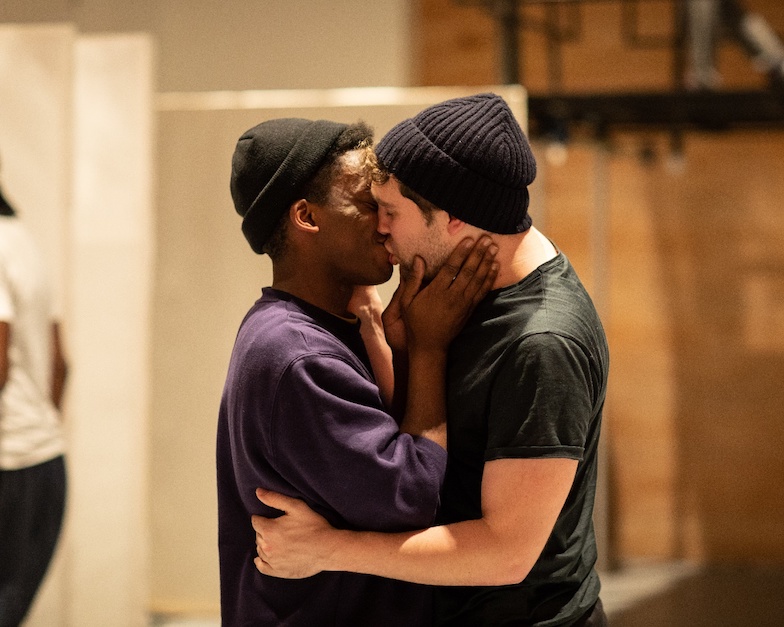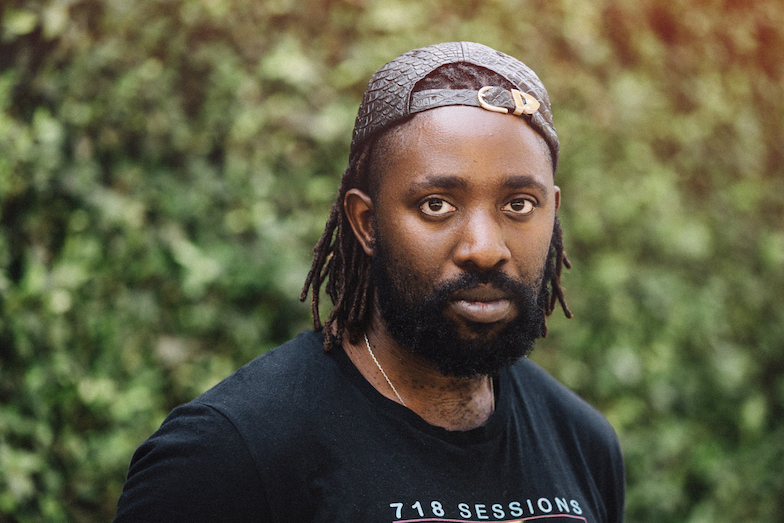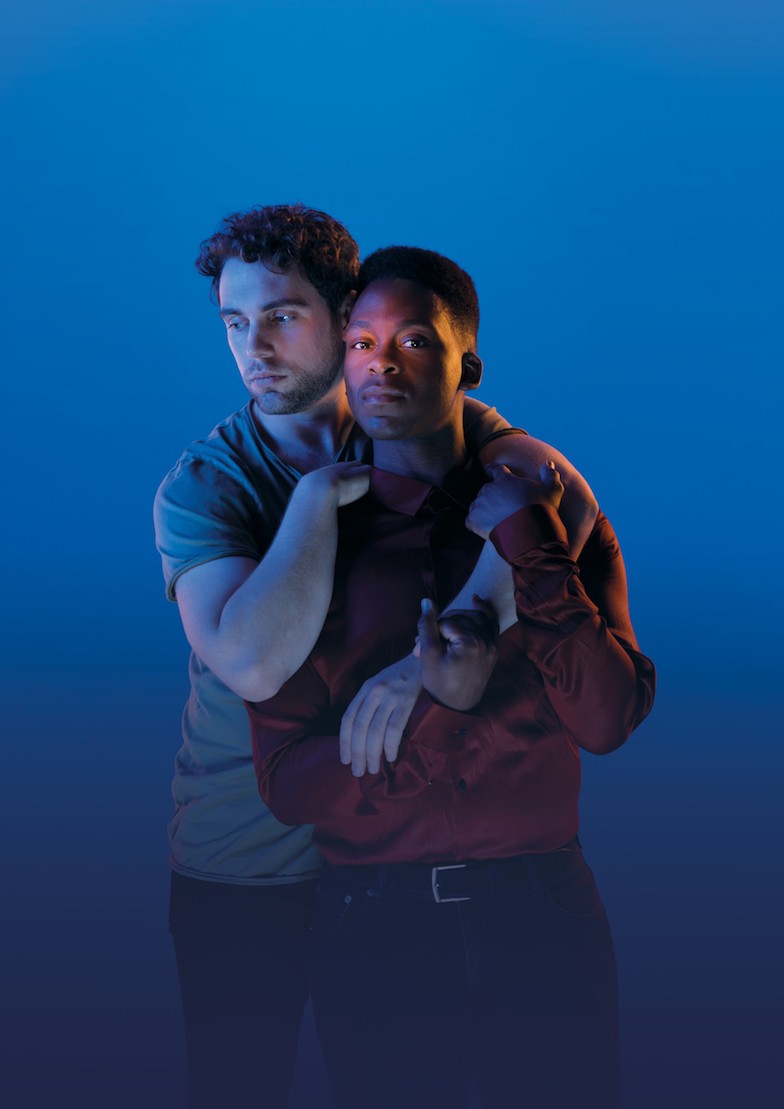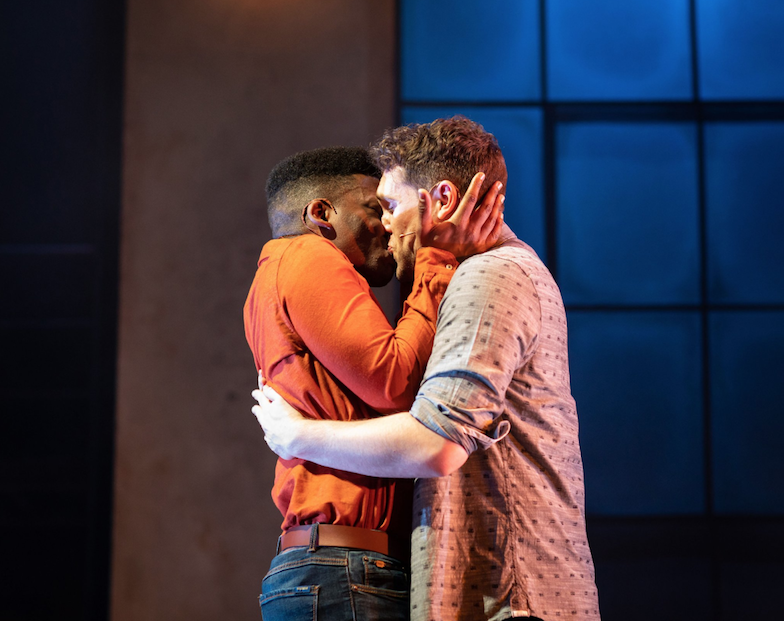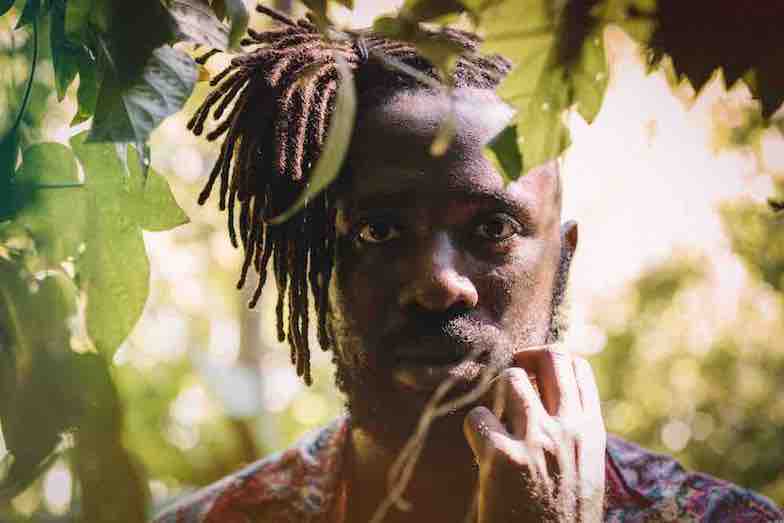
With the rise of LGBTQ storytelling in mainstream, the question of how we move the conversation on is one almost without an answer. And, more importantly, which of the many wonderful and colourful parts our our queer lives do we focus on first?
Bloc Party’s Kele Okereke and writer Matt Jones are aiming to try and present an answer with their new musical. Playing at the Lyric Hammersmith, Leave to Remain examines the power of love and brings topics including gay marriage and the relationship between families to the stage in what’s certainly seen as a first.
We meet the pair to find out why this piece of work is sure to create a much-needed new conversation around our ever-developing queer lives.
How would you explain what your new show Leave to Remain is?
Matt Jones: It’s a story of gay marriage which is unusual for a musical to be about, and also them music itself is unusual in that it’s a mix of electro music that people will be familiar with from Kele’s solo work, and a fusion of that with West African highlife music. That’s because it’s a story of two gay men getting married, with one American and the other Black British and of Nigerian heritage. It’s two very difficult families coming together as their sons get married.
Why was this the type of narrative one you wanted to develop?
Kele Okereke: It was because, in my life, I can’t really think of too many representations of gay marriage or explorations of gay marriage in the media, and I guess now that gay marriage is legal in this country, I felt it was something quite refreshing to talk about.
MJ: We knew each other socially and he was talking to me about developing an idea for a stage story about two gay men who decide to get married and one of them isn’t sure. That was the basis of it. Marriage is a new issue for lesbians and gay men. Whether we’re going to do it and who gets to ask if we do. Gay marriage we don’t really talk about much just yet and it brings two families together on the strength of their gay children’s love. Gay relationships are not only legitimised for each other
but for their families, but all this was based around the idea of how do you know when you’re ready to get married?
Related: Patti LuPone interview: ‘LGBTQ community is stronger than white supremacists’
As you said, the portrayal of gay marriage on stage is a topic that doesn’t really get discussed.
MJ: I think when you create anything, it has to come out of a question that you’re asking of your own life or the lives of people around you. The big question of who gets to ask and when are you ready are kinda of new questions. I certainly hadn’t seen them in the theatre at all so it felt like fresh territory.
And the representation of queer interracial couples isn’t something we’ve sadly really seen on stage before.
KO: Yeah. That was very much what I wanted to share. These two lovers from different worlds and different cultures coming together, and it surprised me that I couldn’t think of many other examples of interracial gay unions. I just couldn’t think of many other examples and that seemed kind of wrong to me. That didn’t seem right, especially in this age.
Related: Meet Sonia Friedman: British Theatre’s most important LGBTQ advocate
While there’s still a way to go, it does feel like the stories being told on stage are finally starting to reflect the world in which we all live in. Would you agree?
KO: Yeah. I feel that people are definitely making headspace into other forms of representation which is the only thing that we can maybe ask for. We need more stories and we need more images so, yeah, I feel that people are certainly conscious about the lack of diversity and I think that was the reason why we started this. We need more stories and we need more queer stories, people of colour. It’s not just about being one voice that speaks for all or speaks for the gay experience. It’s about a multitude of
different stories as part of that.
Matt, how does Leave to Remain incorporate the different types of theatre styles?
MJ: It’s different to a traditional music in that the three people behind the creative team don’t come from that background. Obviously Kele comes from a kind of rock background. I write telly and Robby Graham who is the director is a movement choreographer and does a lot of work at the National Theatre. The idea was rather than to do something which was about scene, song, scene, create something where the movement blurred the scripted drama to meet the movement to song. The heart of the show is about the fusion of two families from two different backgrounds, and the music itself is a fusion of West African music and a more familiar electro music which feels more London.
How key was it for the narrative of queer people of colour to not be, as they sadly are so regularly, seen as a secondary storyline?
KO: It definitely was important for me. I feel that as a community, the gay community, we have definitely come a long way in terms of what we see and how we’re represented in the media. But I still think there are other stories and other worlds that we can presented rather than one gay story. That’s important and has really driven me to push the subject forward and not an addition. I think certainly gay people of colour will hopefully be able to recognise the dynamic between his family and it
was important for me for that to be represented.
Kele, the idea of you working in theatre is exciting. Did you take much convincing?
KO: I didn’t take any convincing really, and it was something I was quite excited about actually. But also, wary because it is a new medium for me. I did as much research as I could, listened to as many cast records as I could and went to see as many musicals as I could. It was important that I got to showcase what it I thought a musical could be. Hand on heart, I’m not a big fan of traditional musicals, they all seemed a bit tripe, so it was something for me to try and explore the different ways of communicating in that space and bring in some slightly left-field or experimental ideas into the pot. Ultimately, I thought I could create something I would want to go see.
Related: Exclusive: Watch Andrew Garfield, Russell Tovey and cast in Angels in America trailer
And finally, what do you hope people take from the show?
MJ: A good night out, fundamentally. One of the things I like about the show is that it’s a love story. The aren’t many of those for gay men, and this love story feels quite contemporary, quite epic, but also very heartfelt as that’s the nature of musicals as people sing their feelings. A few times in rehearsals, watching our two leads singing to each other, singing about what they’re feeling as gay men, I’m really aware that I don’t get to see that very often. Love between two men is really worth singing about.
More information on Leave to Remain can be found here.
